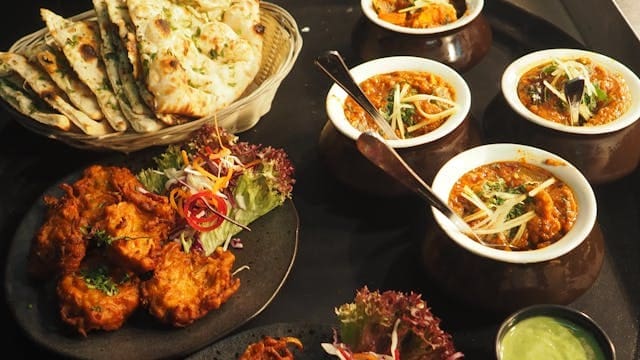Selecting the right suppliers is a critical element for the success of any restaurant. From the quality of ingredients to the reliability of delivery, the choices you make can significantly impact your establishment’s reputation and profitability. This guide will delve into the various types of suppliers in the food industry and provide you with insights on how to find quality and reliability in your supply chain.
Primary Food Suppliers
Broadline suppliers are the backbone of many restaurant supply chains, offering a wide range of products that include everything from fresh produce to cleaning supplies. They are known for their convenience, allowing restaurants to purchase a variety of items from a single source, often at bulk prices.
This can simplify ordering processes and logistics, making it easier to manage your inventory. However, when working with broadline suppliers, it’s essential to consider pricing, contract terms, and delivery schedules. While they offer convenience, the cost and terms can vary, and it’s crucial to ensure that they align with your restaurant’s needs and budget.
For restaurants that focus on niche markets or have specific dietary requirements, specialty food suppliers can be invaluable. These suppliers provide products that cater to specific needs, such as organic, gluten-free, or ethnic foods. The advantage here is access to unique, high-quality products that can set your restaurant apart. Specialty suppliers often place a strong emphasis on quality, but this can come with higher costs and potentially limited product ranges. Ensuring that these suppliers can consistently meet your needs is key to maintaining a reliable supply chain.
Check out https://cmjjgourmet.com/ for more information on the best packaging options for your niche products.
Beverage Suppliers
Alcoholic beverage suppliers are critical for any restaurant that serves wine, beer, or spirits. These suppliers can range from large distributors to specialized boutique providers. When selecting an alcoholic beverage supplier, it’s essential to consider licensing and regulatory requirements to ensure compliance with local laws. Variety and quality are important factors in beverage selection. Offering a diverse and high-quality beverage menu can enhance your restaurant’s appeal and attract a broader customer base.
Non-alcoholic beverage suppliers provide products like soft drinks, juices, and specialty beverages. With growing health and wellness trends, many restaurants are expanding their non-alcoholic offerings to include more nutritious and innovative options. Consistency in supply and freshness is crucial when it comes to beverages. Establishing reliable relationships with suppliers who can deliver fresh and high-quality products regularly is essential to maintaining customer satisfaction.
Produce Suppliers
Sourcing produce from local farms and farmers’ markets offers several benefits, including freshness, sustainability, and support for the local economy. Local produce is often fresher due to reduced transportation time, which can enhance the flavor and quality of your dishes.
However, local sourcing can be subject to seasonal availability, impacting menu planning. Building strong relationships with local farmers can help ensure a steady supply of high-quality produce and allow for more flexibility in sourcing.
Wholesale produce distributors provide a consistent supply of a wide range of products, making them a reliable option for many restaurants. These suppliers can offer competitive pricing and a broad selection, which is advantageous for maintaining a diverse menu.
Quality control, pricing, and delivery logistics are critical considerations when working with wholesale distributors. Ensuring that the distributor maintains high standards for quality and offers reliable delivery services is essential for smooth operations.
Meat and Seafood Suppliers
Meat suppliers, including butchers and wholesale meat distributors, are crucial for any restaurant serving meat dishes. Factors such as sourcing, handling, and storage are vital for maintaining the quality of meat products. Ethical sourcing and certifications, like organic or grass-fed labels, can also play a significant role in the quality and appeal of your menu items. Ensuring that your meat suppliers adhere to high standards of hygiene and quality control is essential for food safety and customer satisfaction.
Seafood suppliers range from local fish markets to national distributors. Freshness is paramount when it comes to seafood, and sourcing from reputable suppliers who prioritize sustainability can enhance your restaurant’s offerings. Sustainability and regulatory requirements, such as certifications from the Marine Stewardship Council (MSC), are important considerations. These certifications ensure that the seafood is sourced responsibly, which can appeal to environmentally-conscious consumers.
Dairy and Bakery Suppliers
Dairy suppliers include local dairies and large-scale distributors. Freshness and proper storage are crucial for dairy products to maintain their quality and safety. With trends moving towards organic and plant-based alternatives, having a diverse range of dairy products can cater to different customer preferences. Building relationships with reliable dairy suppliers ensures a consistent supply of fresh and high-quality products, which is essential for many restaurant dishes.
Bakery suppliers can range from local bakeries to commercial suppliers. Quality ingredients and freshness are key factors for bakery products. Local bakeries can offer customization options tailored to your restaurant’s specific needs, adding a unique touch to your offerings.
Working with reputable bakery suppliers ensures that you have access to high-quality baked goods that meet your standards and enhance your menu.
Conclusion
Choosing the right suppliers is crucial for the success of your restaurant. Prioritizing quality and reliability in your supply chain helps maintain high standards and ensures customer satisfaction. By following the tips and insights provided in this guide, you can build successful supplier relationships that support your restaurant’s growth and success.
The New Jersey Digest is a new jersey magazine that has chronicled daily life in the Garden State for over 10 years.
- Staffhttps://thedigestonline.com/author/thedigeststaff/
- Staffhttps://thedigestonline.com/author/thedigeststaff/
- Staffhttps://thedigestonline.com/author/thedigeststaff/
- Staffhttps://thedigestonline.com/author/thedigeststaff/


